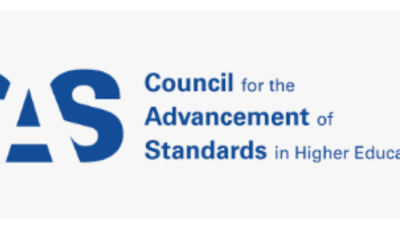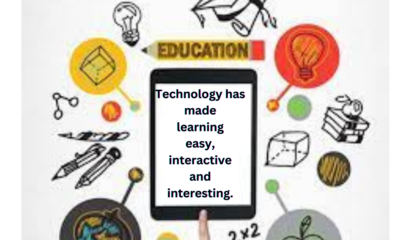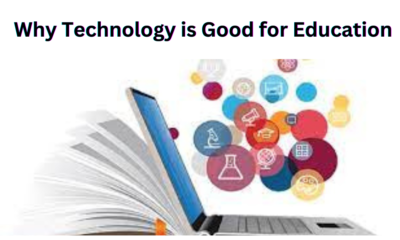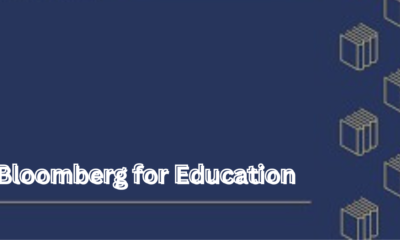Education
Arlington Community Education: Empowering Through Learning

In the heart of Arlington lies a hidden gem that has been enriching lives for years: Arlington Community Education. Established with the vision of providing accessible and quality education to the local community, this institution has grown into a hub of learning and personal development.
I. Introduction
Arlington Community Education serves as a beacon of learning, fostering a sense of curiosity and growth within the community. The importance of such an institution cannot be overstated, as it not only imparts knowledge but also contributes significantly to the overall development of the local area.
II. History of Arlington Community Education
Founded several decades ago, Arlington Community Education has a rich history of evolution and growth. What started as a modest initiative has transformed into a comprehensive educational center, catering to the diverse needs of the community.
The Genesis:
In the late 20th century, a group of visionary locals identified the need for accessible education beyond traditional schools. This realization marked the birth of Arlington Community Education, a grassroots initiative aimed at providing learning opportunities for all.
Early Challenges and Triumphs:
The initial years were not without challenges. Limited resources and a small team of dedicated enthusiasts worked tirelessly to lay the foundation. However, the passion for community enrichment triumphed, and Arlington Community Education began to find its footing.
Evolution Over Decades:
As the years unfolded, the institution evolved. What started as a modest collection of classes soon expanded into a comprehensive educational hub. The curriculum was diversified, catering to various interests and age groups, making it an indispensable part of the community.
Adapting to Change:
It was not immune to the winds of change. The institution embraced technological advancements, introducing online learning options to reach a broader audience. This adaptability ensured its relevance in an ever-evolving educational landscape.
Notable Milestones:
The journey is marked by significant milestones. Accreditation, collaborations with renowned educators, and community accolades added layers to the institution’s success story. Each milestone reflected a commitment to excellence and a dedication to serving the community.
Present-Day Significance:
Today, Arlington Community Education stands as a testament to the vision of its founders. It remains a vital catalyst for individual growth, community development, and the democratization of education.
III. Courses Offered
One of the distinguishing features of Arlington Community Education is its extensive range of courses. From arts and sciences to vocational training, the institution caters to learners of all ages, ensuring that there is something for everyone.
IV. Notable Instructors
Behind every successful educational institution are experienced and dedicated instructors. This platform takes pride in its team of educators, each bringing a wealth of knowledge and expertise to the classroom. Their impact on the learning experience is immeasurable.
V. Student Testimonials
Real-life success stories from students who have benefited from Arlington Community Education highlight the positive impact of this institution. The glowing testimonials and reviews attest to the quality of education and the transformative experiences it offers.
VI. Community Involvement
It goes beyond the classroom, actively engaging with the local community. Partnerships with businesses and community organizations contribute to the overall development of the area, creating a symbiotic relationship.
VII. Advantages of Community Education
Flexibility and affordability are key advantages of community education. It provides courses with schedules that accommodate various lifestyles, making it accessible to a broader audience. The affordability factor ensures that education is not a luxury but a right for all.
VIII. Online Learning Opportunities
In the digital age, Arlington Community Education has embraced technology to provide online learning opportunities. This transformation has made education more accessible than ever, allowing individuals to pursue their educational goals from the comfort of their homes.
IX. Future Plans and Expansion
With a clear vision for the future, Arlington Community Education aims to expand its reach and impact. The institution envisions becoming a driving force in community development, fostering a culture of lifelong learning.
X. Engaging Events and Workshops
Beyond traditional classroom settings, Arlington Community Education hosts engaging events and specialized workshops. These activities not only supplement the learning experience but also create a vibrant community of learners.
XI. Success Metrics
Arlington Community Education takes pride in its quantifiable results. The success metrics and achievements of participants serve as a testament to the effectiveness of the programs offered, further motivating prospective students.
XII. How to Enroll
For those eager to embark on a learning journey, enrolling is a straightforward process. The step-by-step guide ensures that prospective students can easily navigate the enrollment process, making education accessible to all.
XIII. Alumni Network
Staying connected with graduates is a priority. The establishment of a robust alumni network provides ongoing support and networking opportunities, creating a sense of community among past and present students.
XIV. Challenges and Solutions
Addressing challenges in community education is crucial for continual improvement. Arlington Community Education identifies common issues and implements strategies to overcome them, ensuring a high-quality learning experience for all.
Conclusion:
In conclusion, Arlington Community Education stands as a testament to the power of community-driven learning. As we navigate a world that demands continuous growth and adaptation, institutions like this play a vital role in empowering individuals through education. Take the step, explore the opportunities, and let this platform be your guide to a brighter future.
FAQs:
Q: How do I enroll in courses at Arlington Community Education?
A: Enrolling is easy! Visit our website, choose your desired course, and follow the simple online registration process.
Q: Are there financial assistance options available for students?
Yes, it offers financial assistance programs to ensure that education remains accessible to everyone.
Q: Can I access course materials online?
Absolutely! Most courses provide online resources for convenient access, allowing you to study at your own pace.
Q: What sets Arlington Community Education apart from other educational institutions?
Our focus on community engagement, diverse course offerings, and experienced instructors distinguish us, creating a unique and enriching learning environment.
Q: How can I stay connected with fellow alumni?
Join our alumni network and participate in various events and networking opportunities. Stay connected with your peers and continue to grow together.
Education
“Setting the Bar: The Role of CAS in Advancing Standards for Higher Education”

The Council for the Advancement of Standards in Higher Education (CAS)
The Council for the Advancement of Standards in Higher Education (CAS) is a consortium of professional associations in the United States dedicated to the development and promulgation of guidelines and standards for quality programs and services in higher education. CAS was founded in 1979 and has since been a leading force in establishing benchmarks and best practices across various functional areas in higher education.
Member organizations of CAS include prominent associations such as the American College Personnel Association (ACPA), the National Association of Student Personnel Administrators (NASPA), and the Association for the Assessment of Learning in Higher Education (AALHE), among others.
CAS standards serve as a valuable resource for colleges and universities, providing guidance on how to assess and improve the quality of programs and services offered to students. Adhering to CAS standards can help institutions enhance student learning, development, and overall success.
History and Background
CAS was founded in response to the need for standardized practices in higher education. With the increasing complexity and diversity of institutions, there is a growing demand for clear and consistent standards to assess and improve the quality of programs and services.
Mission and Objectives
The primary mission of CAS is to promote the development and use of standards in higher education to enhance student learning, development, and success. CAS aims to facilitate collaboration among stakeholders and encourage continuous improvement in educational practices.
Structure and Governance
CAS operates as a consortium of member organizations representing different areas of higher education, including student affairs, academic programs, assessment, and administration. These organizations collaborate to develop and maintain CAS standards.
Development of Standards
CAS standards are developed through a rigorous process that involves input from experts and practitioners in the field. Standards undergo regular review and revision to ensure they remain relevant and effective in addressing the evolving needs of higher education.
Areas Covered by CAS Standards
CAS standards cover a wide range of areas, including student affairs, academic programs, diversity and inclusion, assessment and evaluation, and administrative services. These standards provide guidelines for institutions to assess and improve various aspects of their operations.
Importance of CAS Standards
CAS standards play a crucial role in promoting accountability, transparency, and quality in higher education. By providing clear benchmarks for excellence, CAS standards help institutions align their practices with best practices and enhance the overall student experience.
Application of CAS Standards
Institutions can use CAS standards as a framework for self-assessment, program review, and accreditation processes. By aligning their practices with CAS standards, institutions can demonstrate their commitment to continuous improvement and student success.
Benefits for Institutions
Adhering to CAS standards can help institutions enhance their reputation, attract students and faculty, and improve institutional effectiveness. By following established guidelines, institutions can identify areas for improvement and implement evidence-based practices.
Benefits for Students
CAS standards focus on promoting student learning, development, and success. By adhering to these standards, institutions create a supportive and inclusive environment that fosters student growth, engagement, and achievement.
Criticisms and Challenges
CAS standards are utilized in higher education and are generally acknowledged, yet there are others who disagree with them. Some argue that CAS standards can be overly prescriptive and may not adequately reflect the diverse needs and contexts of institutions.
Future Outlook
As higher education continues to evolve, CAS will play a crucial role in shaping the future of the field. By remaining responsive to emerging trends and challenges, CAS can continue to provide valuable guidance and support to institutions.
Conclusion:
The Council for the Advancement of Standards in Higher Education (CAS) plays a vital role in promoting quality and excellence in higher education. Through the development and dissemination of standards, CAS helps institutions enhance student learning, development, and success.
By adhering to CAS standards, colleges and universities can enhance the quality of their programs and services, leading to improved student learning, development, and overall success. CAS provides valuable resources and guidelines to help institutions assess and improve their practices, ultimately benefiting students and the broader higher education community.
FAQs
1. What is the purpose of CAS standards?
The purpose of CAS standards is to support quality and excellence in higher education by giving institutions of higher learning rules and standards by which to evaluate and enhance their services and programs.
2. How are CAS standards developed and updated?
A cooperative approach including subject matter experts and practitioners results in the development of CAS standards. Standards undergo regular review and revision to ensure they remain relevant and effective.
3. How do institutions apply CAS standards?
Institutions can use CAS standards as a framework for self-assessment, program review, and accreditation processes. By aligning their practices with CAS standards, institutions demonstrate their commitment to excellence.
4. What are some examples of CAS standards in practice?
Examples of CAS standards include guidelines for student affairs programs, assessment practices, diversity and inclusion initiatives, and administrative services.
5. How does CAS contribute to the improvement of higher education?
CAS provides institutions with valuable guidance and support to enhance student learning, development, and success. By following CAS standards, institutions can identify areas for improvement and implement evidence-based practices.
Education
Unlocking Success with Andrews Learning Hub

Introduction:
Andrews Learning Hub is a leading educational institution that provides high-quality learning experiences to students of all ages and backgrounds. With a commitment to excellence and innovation, Andrews Learning Hub has established itself as a premier destination for lifelong learning. Andrews Learning Hub is your gateway to educational excellence and personal growth. Discover how our innovative platform can transform your learning experience.
Andrews Learning Hub is a dynamic online platform dedicated to providing high-quality education to learners worldwide. Founded on the belief that learning should be accessible, flexible, and engaging, Andrews Learning Hub offers a diverse range of courses spanning various subjects and disciplines.
With a team of passionate educators and industry experts, Andrews Learning Hub is committed to empowering individuals to achieve their academic and professional goals. Whether you’re looking to advance your career, explore a new passion, or gain valuable skills, our platform offers the resources and support you need to succeed.
At Andrews Learning Hub, we believe in the transformative power of education. Our goal is to establish a vibrant, diverse learning community by utilizing cutting-edge technology, personalized training, and interactive learning opportunities.
History and Background:
Andrews Learning Hub was founded in 2010 by a team of passionate educators with a vision to revolutionize online learning. Initially starting as a small venture offering a handful of courses, Andrews Learning Hub quickly gained traction and expanded its offerings to include a diverse range of subjects spanning various industries and disciplines. Through strategic partnerships with leading educational institutions and industry experts, the platform was able to provide learners with access to cutting-edge curriculum and world-class instruction.
Over the years, institute has continued to evolve, leveraging advancements in technology and pedagogy to enhance the learning experience for its users. The platform has introduced interactive features such as discussion forums, live webinars, and virtual labs to promote engagement and collaboration among learners.
With a commitment to excellence and innovation, this institute has earned a reputation as a trusted provider of online education. Today, it serves a global community of learners, empowering individuals from diverse backgrounds to achieve their academic and professional goals.
Mission and Vision
At Andrews Learning Hub, our mission is to empower individuals through education, equipping them with the knowledge and skills needed to succeed in today’s competitive world. Our vision is to be a catalyst for positive change in the lives of our students and the communities we serve.
Range of Courses Offered
Andrews Learning Hub offers a diverse range of courses tailored to meet the needs and interests of learners across various fields. Our curriculum covers an array of subjects, including:
1. Business and Entrepreneurship:
Explore courses in business management, marketing, finance, entrepreneurship, and leadership development to enhance your skills and advance your career in the business world.
2. Technology and Innovation:
Dive into the latest advancements in technology with courses in programming, web development, data science, cybersecurity, artificial intelligence, and machine learning.
3. Healthcare and Wellness:
Discover courses in healthcare administration, nursing, nutrition, fitness, mental health, and wellness coaching to promote personal well-being and professional growth in the healthcare industry.
4. Creative Arts and Design:
Unleash your creativity with courses in graphic design, photography, video production, music composition, writing, and storytelling to express yourself artistically and pursue your passion.
5. Language Learning:
Master new languages and broaden your cultural horizons with courses in Spanish, French, Mandarin, German, Japanese, and more, designed to help you communicate effectively in a globalized world.
6. Personal Development:
Invest in yourself with courses in personal development, time management, communication skills, mindfulness, resilience, and goal-setting to unlock your full potential and lead a fulfilling life.
7. Academic Subjects:
Excel in your academic pursuits with courses in mathematics, science, history, literature, and language arts designed to support students at every stage of their educational journey.
8. Professional Certification:
Prepare for industry-recognized certifications and licensure exams with specialized courses designed to help you achieve your professional goals and advance your career.
9. Lifestyle and Leisure:
Explore courses in cooking, gardening, travel, crafts, and hobbies to enrich your life outside of work and cultivate new interests and experiences.
10. Specialized Topics:
Explore niche themes and specialized topics catered to certain interests, such as digital marketing, social justice, and environmental sustainability.
Regardless of your interests, Andrews Learning Hub is committed to providing the resources you need to accomplish your goals. Join us today and embark on a journey of lifelong learning and personal growth.
Unique Teaching Methodologies
At Andrews Learning Hub, we believe in fostering a dynamic and interactive learning environment. Our experienced instructors utilize innovative teaching methodologies to engage students and promote active learning.
Qualified Instructors and Experts
Academics, industry experts, and seasoned educators who are passionate about sharing their knowledge and abilities make up the faculty. They bring real-world experience and academic rigor to the classroom, ensuring that students receive a well-rounded education.
Learning Resources and Facilities
We provide state-of-the-art learning resources and facilities to support student success. From well-equipped classrooms to modern laboratories and libraries, we offer everything students need to excel in their studies.
Collaborations and Partnerships
We collaborate with leading industry partners and academic institutions to enhance the learning experience and provide students with valuable opportunities for networking and professional development.
Community Engagement Initiatives
At Andrews Learning Hub, we are committed to giving back to the community. We work to improve society and enable people to achieve their full potential through a range of programs and projects.
Future Growth and Expansion Plans
As we look to the future, we remain committed to continuous improvement and growth. We are looking at new, audience-reaching programs to ensure that our institute continues to be a leader in education.
Conclusion:
As Andrews Learning Hub looks towards the future, it remains dedicated to its mission of making quality education accessible to all. By staying at the forefront of educational trends and continuously refining its offerings, the platform strives to inspire lifelong learning and drive positive change in the world.
FAQs
1. What are the admission requirements for Andrews Learning Hub?
Admission requirements vary depending on the course of study. Please refer to the specific program page for more information.
2. Does Andrews Learning Hub offer financial aid or scholarships?
Yes, we offer various financial aid options and scholarships for eligible students. Please contact our admissions office for details.
3. Are online courses available at Andrews Learning Hub?
Yes, we offer a selection of online courses for students who prefer flexible learning options.
4. Can I transfer credits from other institutions to the Andrews Learning Hub?
Yes, we accept transfer credits from accredited institutions. Please consult with our admissions office for more information on the transfer process.
5. Does Andrews Learning Hub offer career services for students?
Yes, we help our students reach their professional objectives by offering them networking opportunities, career counselling, and job placement.
Education
Exploring the Symbiotic Relationship Between Technology and Education
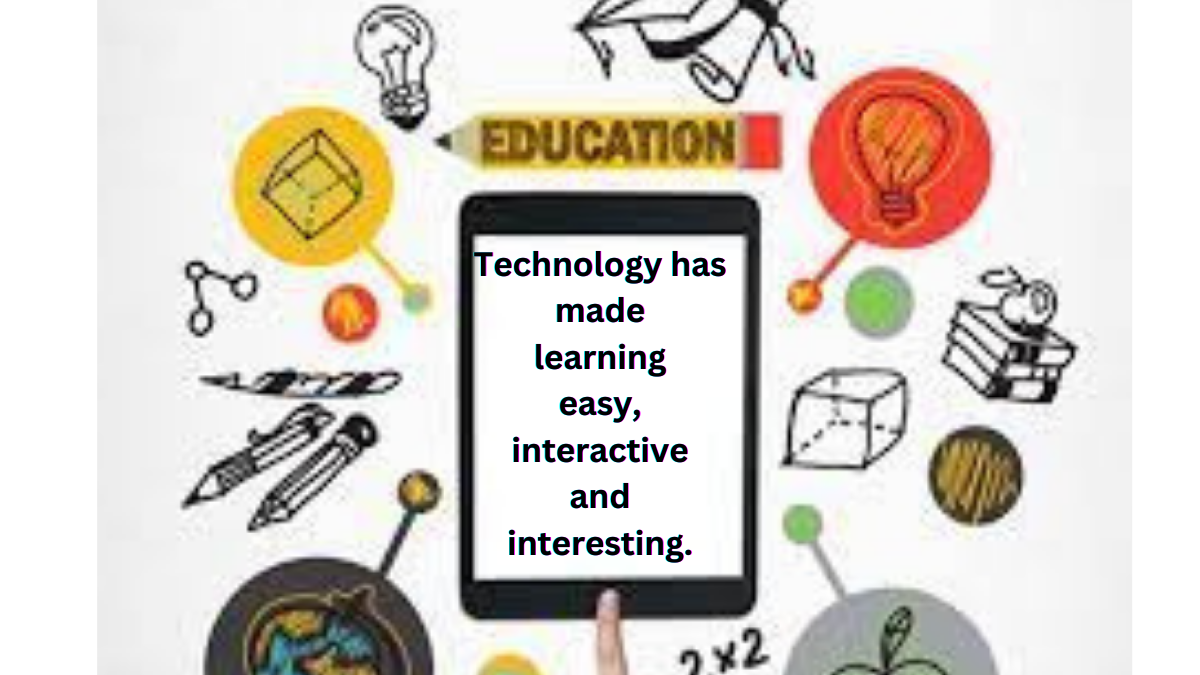
Exploring the Symbiotic Relationship Between Technology and Education
In the fast-paced evolution of the modern world, the intersection of technology and education has become increasingly pronounced. This dynamic relationship is not just about integrating gadgets into classrooms; it signifies a profound transformation in the way knowledge is acquired, disseminated, and applied. Let’s delve into the multifaceted aspects of the symbiotic bond between technology and education.
1. Introduction
The advent of technology has ushered in a new era in education, revolutionizing traditional teaching methods. From interactive whiteboards to online learning platforms, the integration of technology has fundamentally altered the educational landscape.
-
What does education mean?
Information, education, and knowledge: The Latin word “educatum,” which means “teaching work,” is the source of the English term “education.” Its origin has been ascribed by several eminent scholars to the verb “educare,” which means “to raise.”
-
What does technology mean?
Technology is the application of scientific discoveries, laws, theories, and procedures to various facets of life. Consequently, technology is defined as “the art of science.” As such, technology refers to the application of systematic, well-organized, and scientific knowledge to the performance of routine tasks. Although most people equate the word “technology” with machines, they are not necessarily necessary.
2. Enhancing Access to Information
One of the primary advantages of technology in education is the democratization of information. The internet serves as a vast repository of knowledge, providing students and educators with instant access to a plethora of resources. This shift from traditional libraries to online databases has empowered learners to explore diverse subjects and perspectives.
3. Interactive Learning Environments
Technology brings dynamism to the classroom through interactive learning tools. Educational apps, simulations, and virtual reality experiences engage students in ways that traditional lectures cannot. These interactive elements not only capture attention but also deepen understanding through experiential learning.
4. Personalized Learning Experiences
The concept of one-size-fits-all education is fading, thanks to technology. Adaptive learning platforms use data analytics to tailor educational content to individual students’ strengths and weaknesses. This personalized approach fosters a more efficient and effective learning experience.
5. Global Connectivity and Collaboration
The world has become a global village, and technology facilitates cross-border collaboration in education. Virtual classrooms, video conferencing, and collaborative online platforms enable students from different parts of the globe to engage in joint projects, breaking down geographical barriers.
6. The Rise of E-Learning Platforms
E-learning platforms have transformed education’s traditional brick-and-mortar model. Students now have the flexibility to access educational materials, lectures, and assessments at their convenience. This accessibility is particularly beneficial for non-traditional learners and those with geographical constraints.
7. Real-Time Feedback Mechanisms
Technology enables instantaneous feedback, a crucial component in the learning process. Online quizzes, automated assessments, and learning management systems provide immediate insights into student performance, allowing for timely intervention and improvement.
8. Fostering Innovative Teaching Methods
Teachers are no longer confined to chalkboards and textbooks. Technology empowers educators with innovative tools like smartboards, educational software, and multimedia presentations. These tools make lessons more engaging and cater to diverse learning styles.
9. Bridging the Digital Divide
While technology has made significant strides, concerns about accessibility persist. Efforts to bridge the digital divide involve ensuring that all students, regardless of socio-economic background, have access to the necessary devices and internet connectivity for effective learning.
10. Cultivating Critical Thinking and Problem-Solving Skills
Technology encourages students to think critically and solve problems. Access to information at their fingertips prompts them to analyze, evaluate, and apply knowledge in practical scenarios, preparing them for the complexities of the real world.
The Significance of the Intersection Between Technology and Education
In the 21st century, the amalgamation of technology and education has transcended being a mere trend; it has become a fundamental shift in how we approach learning and knowledge dissemination. The significance of this intersection is profound, influencing not only the methods of teaching but also the very essence of what it means to be educated.
Conclusion:
The relationship between technology and education is symbiotic, with each influencing and shaping the other. As we navigate this transformative journey, it’s essential to harness the potential of technology while preserving the fundamental values of education. The dynamic integration of technology ensures that education remains a vibrant, adaptive force, molding the minds of the future.
FAQs:
1. Can technology replace traditional teaching methods entirely?
No, a harmonious blend of technology and traditional methods creates an effective and comprehensive learning environment.
2. How does technology address the diverse learning needs of students?
Adaptive learning platforms tailor content to individual needs, providing customized educational experiences.
3. Is technology accessible to all students?
Efforts are ongoing to bridge the digital divide and ensure equitable access to technology for all learners.
4. Does technology hinder or enhance critical thinking skills?
When used thoughtfully, technology enhances critical thinking by providing tools for analysis and problem-solving.
5. What is the future of technology in education?
The future involves continued innovation, with advancements like artificial intelligence and virtual reality playing prominent roles in education.
-

 Health8 months ago
Health8 months agoHealth Content on theapknews.shop: Keeping Readers Informed and Healthy
-

 How To7 months ago
How To7 months agoExploring How Geospatial Technologies Illuminate Our World
-

 Pets8 months ago
Pets8 months agoUncovering the Jovial Internet Expression “What the Heckin’ Dog”
-

 Health8 months ago
Health8 months agofuture health software could change healthcare(An Overview)
-

 Technology8 months ago
Technology8 months agoCraft Design Technology
-

 Technology7 months ago
Technology7 months agoAmerican Made Streaming: Exploring Entertainment Options
-

 News8 months ago
News8 months agoShedding light on the History of Ertugrul Ghazi
-

 Technology7 months ago
Technology7 months agoRevealing the Geekzilla.tech Marvels: Honour Magic5 Pro


